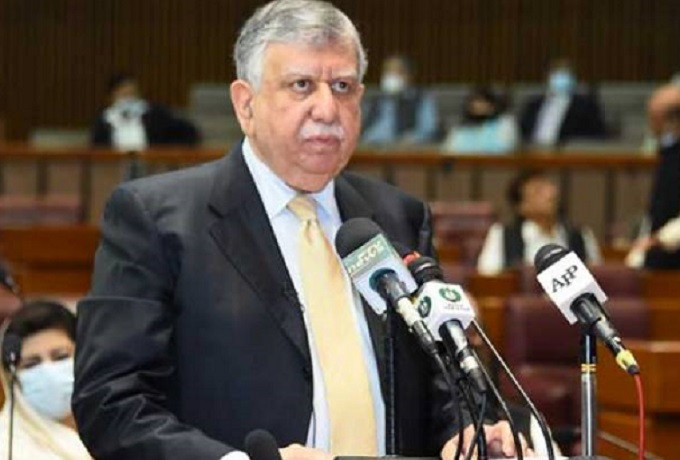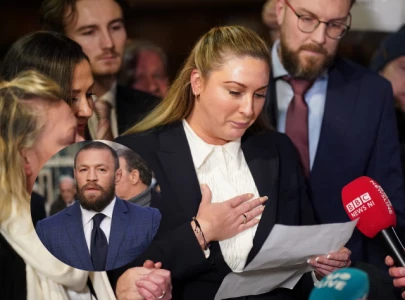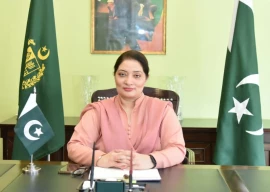
The government has set up another cabinet sub-committee which will be headed by the finance adviser to decide on the privatisation programme amid delay in getting Shaukat Tarin elected as a senator.
Headed by Economic Affairs Minister Omar Ayub, the Cabinet Committee on Privatisation (CCOP) met briefly and constituted a committee, headed by Tarin.
The committee will work on the pattern of Economic Coordination Committee (ECC) of the cabinet where Tarin takes decisions which are then stamped by Ayub.
The Islamabad High Court has barred unelected cabinet members from heading cabinet bodies and the government has come up with the idea of constituting a “technical committee” comprising the same people.
Members of the technical committee are elected and unelected members of the cabinet, to be led by Tarin.
The CCOP meeting had been convened to approve a summary for authorising the National Power Parks Management Company Limited (NPPMCL) to arrange Rs103.7 billion in loans from banks and repay the government before the privatisation of two liquefied natural gas (LNG)-fired power plants.
Prime Minister Imran Khan had promised to get Tarin elected as a senator before October 16 but he could not do so and instead downgraded Tarin to the post of adviser.
Last month, the media reported that Senator Ayub Afridi might resign to clear the way for getting Tarin elected. But so far no formal notification has been issued to de-seat Afridi.
The CCOP referred the debt refinancing summary to the newly constituted Tarin-led committee. Privatisation transaction of over a billion dollars for the two LNG-fired power plants has been facing delay of over two years as the government has not been able to resolve issues related to debt financing.
NPPMCL, which owns 1,230-megawatt Haveli Bahadur Shah and 1,223MW Balloki power plants, is the only notable entity on the government’s privatisation list. During the past over three years, the privatisation ministry has failed to justify its existence.
In January this year, the Ministry of Privatisation vowed that the privatisation of LNG plants would be completed by June and the financial close would take place by the second or third quarter of next fiscal year 2021-22. All these deadlines have again become irrelevant.
The government expects minimum proceeds of around $1.5 billion from the sale of these two plants. It had initially planned to sell the company by June 2019.
Haveli Bahadur Shah and Balloki power plants, owned by NPPMCL, were set up with government funding instead of the 70:30 debt-to-equity ratio allowed in the National Electric Power Regulatory Authority’s (Nepra) tariff determination for the two power plants.
The CCOP summary showed that 70% cost of the projects needed to be converted into long-term financing for the privatisation of the power plants in line with the tariff-based capital structure.
Under Nepra guidelines, the private sector can acquire debt up to Kibor plus 3.5% from local banks and at London Inter-Bank Offered Rate (Libor) plus 4.5% from foreign banks. This cost is then built into electricity prices.
However, the actual cost of NPPMCL power plants was Kibor plus 1.8% and the fresh debt financing has to be within this limit.
Nepra in its tariff determination for both power plants has fixed the rate of debt financing at Kibor plus 1.8%. Arrangement of foreign financing is not possible at this rate, according to the privatisation ministry.
The proposal of commercial borrowing for NPPMCL to refund excess government equity and loan and release sovereign guarantees had also been earlier debated in the CCOP but no decision could be taken.
The privatisation board has already recommended the proposed debt recapitalisation and refinancing scheme. The privatisation ministry is now seeking CCOP’s approval to solicit interest from scheduled banks and development finance institutions to arrange Rs103.8 billion for seven years at the Nepra’s determined tariff of Kibor plus 1.8%.
Published in The Express Tribune, November 23rd, 2021.
Like Business on Facebook, follow @TribuneBiz on Twitter to stay informed and join in the conversation.


















COMMENTS (1)
Comments are moderated and generally will be posted if they are on-topic and not abusive.
For more information, please see our Comments FAQ